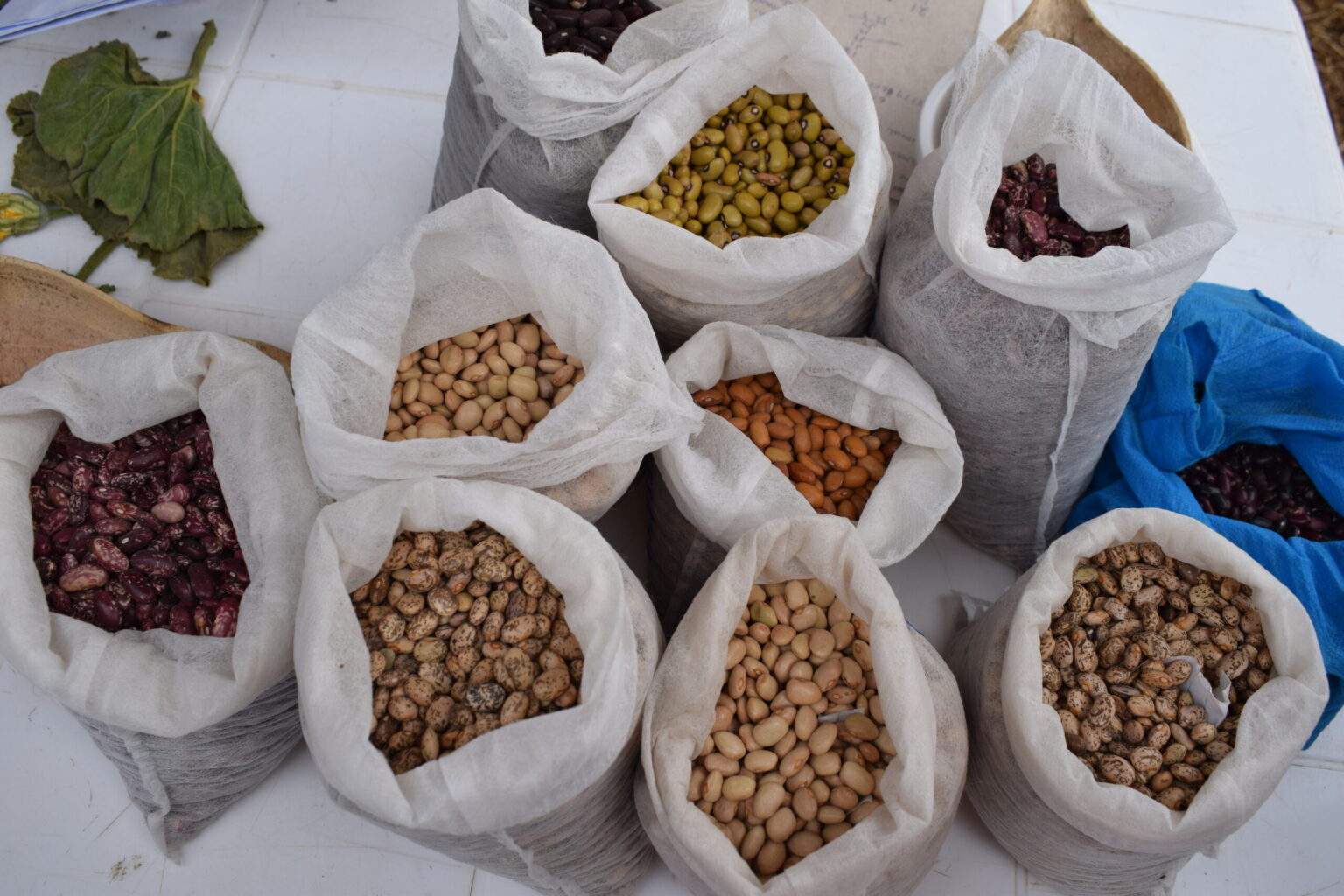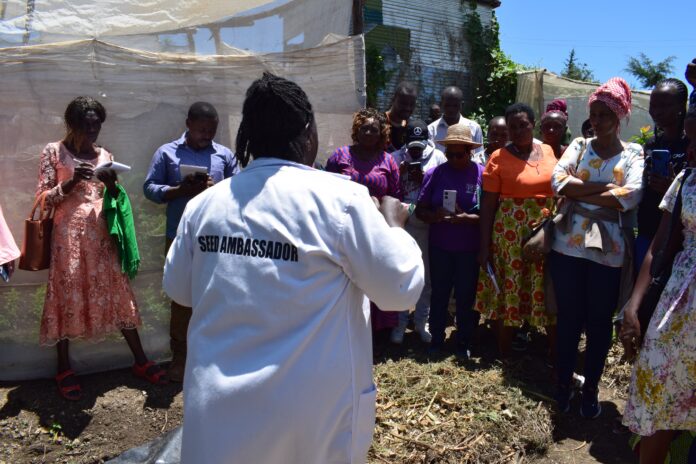By Jackson Okata
Nairobi, Kenya: As Africa grapples with the need to feed its growing population amidst changing climate conditions, community-centred farmer-managed seed systems could prove to be a critical element in the continent’s emergency responses to food crises, experts have advised.
Dr. Goudian Gwademba, a food systems expert at Deutsche Welthungerhilfe , argues that farmer-led Indigenous seed propagation, preservation and sharing is a perfect emergency response tool to Africa’s growing food and nutrition needs.
“Farmer-managed seed systems provide a viable solution for efficient, sustainable and resilient food systems, which African countries need,’’ said Gwademba.
The experts spoke at a side event jointly organized by the Seed Savers Network and Swiss Aid during the second Eastern African Agroecology Conference in Nairobi from March 25-28.
According to Gwademba, the informal seed system provides seeds for orphaned crops which may not be available within the commercial seed systems.
He cited crops like millet, sorghum, yams, arrow roots, cowpeas and cassava which he says can help Africa withstand the shocks of climate-occasioned food crises like prolonged droughts and famine.
“You are unlikely to miss seeds for these crops in community seed banks because the smallholder farmers have them. These drought-resistant crops are not only high in nutritional value but can cushion millions of Africans from hunger,’’ said Gwademba.
Gwademba says drought-resistant crops do well in water-scarce regions where commercial seed systems seem less profitable, underscoring the importance of investing in farmer-managed seed systems in such areas.

Dominic Kimani, research and advocacy officer at Seed Savers Network (Kenya), observed that seed and knowledge sharing, timely seed access, and diverse seed stocks which are key components of farmer-managed seed systems have seen farmers in Arid and Semi-arid (ASAL) areas spending less and producing optimally from small pieces of land.
“Farmer-managed seed systems are effective for seed aid during emergencies especially when we are trying to spur recovery from risk situations like prolonged drought’’ said Kimani.
Seed Savers Network CEO Daniel Wanjama argued that decentralized seed distribution systems like farmer-managed ones eliminate the risk of pests and diseases spreading compared to a centralized one.
“In a situation where only one person is producing and sharing seeds, if his variety gets infected then all farmers will suffer the fate but the diversity of seed stocks in farmer-managed seed systems provide some degree of cushion against such occurrences,’’ Wanjama explained.
Further, Wanjama argues that the farmer-managed seed system allows farmers to access their own seed needs, select seeds based on their preferences and conserve them using means that are responsive and adaptive to their environment.
“Seed emergency response can only be effective when farmers are given space to grow what they want and what works for them but not what they are being provided,” said Wanjama.
The conference is running under the theme of Strengthening Agri-Food System Transformation for Resilience, Sustainability and Socioeconomic Development.
Stakeholders attending the conference are discussing important issues including evidence generation of agroecology impacts, scaling up agroecological transitions, digitalization in agri-food systems, investment in research and innovation, trade opportunities, engagement of small-scale food producers including Indigenous peoples, women, youth and the private sector in agri-food systems transformation.















I commend the experts and stakeholders at the Eastern African Agroecology Conference for their timely and insightful discussions on the role of farmer-managed seed systems in addressing Africa’s food security challenges. As climate change continues to pose threats to food production, the emphasis on Indigenous seed propagation, preservation, and sharing is a commendable step toward ensuring sustainable, resilient, and community-driven food systems.
Dr. Goudian Gwademba’s advocacy for farmer-led seed systems is particularly noteworthy. His emphasis on orphaned crops such as millet, sorghum, yams, and cowpeas highlights the importance of diversifying food sources to cushion communities against climate-induced shocks such as droughts and famine. These crops, often overlooked in commercial seed systems, provide high nutritional value and thrive in harsh climatic conditions, making them invaluable in the fight against hunger and malnutrition.
Furthermore, I appreciate Dominic Kimani’s and Daniel Wanjama’s perspectives on the economic and environmental benefits of decentralized seed systems. By allowing farmers to access, select, and conserve seeds based on their local conditions, these systems empower communities and reduce reliance on costly, external seed suppliers. The argument that decentralized seed management minimizes the risk of widespread pest and disease outbreaks is a strong validation of the need to support and scale up farmer-led initiatives.
The conference theme, Strengthening Agri-Food System Transformation for Resilience, Sustainability, and Socioeconomic Development, is well-aligned with Africa’s long-term food security goals. Investing in agroecology, farmer-led innovations, and Indigenous knowledge systems will undoubtedly strengthen Africa’s ability to withstand climate-related food crises while fostering inclusive and sustainable agricultural development.
I applaud the Seed Savers Network, Swiss Aid, and all participating stakeholders for championing this critical discussion and call upon governments, researchers, and policymakers to prioritize farmer-managed seed systems as part of Africa’s broader strategy for food security and agricultural sustainability.